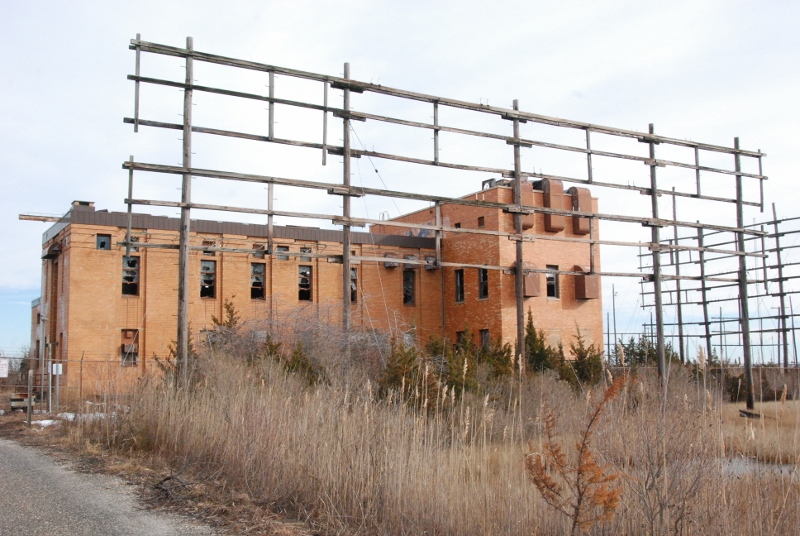
An undated station WOO QSL card.
“Marine operator.”
That crisp voice on VHF channel 26 was the mariners’ link to home and family anywhere on coastal and inland waters for decades.
For water-rat kids growing up around boats on the Jersey Shore, it was a part of daily adult life at sea where they could listen in, along with the chatter of fishing boat captains, and heavily accented voices from inbound cargo ships calling for “Ambrose pilot, Ambrose pilot.”
The short-range radiotelephone patches were cousins to the big AT&T high seas radio services, conceived in the golden age of ocean liner travel in the late 1920s and ‘30s, and realized with gigantic transmitter stations and antenna arrays on the Atlantic coast.
Both went away around the same time. VHF marine operator services dwindled as cellular telephones came down in price, and the AT&T single-sideband high seas service ended in 1999, replaced by Inmarsat satellite technology.
Now some of the last physical remains are going away too, with a plan by the U.S. Fish & Wildlife Service to remove the 500-plus wooden poles and hardware that made up the AT&T station WOO transmitter at Ocean Gate, N.J.
Once part of the Voice of America network carried around the world, the hulking ruin of the transmitter and generation building is one of the last vestiges of the early radio era. Wireless pioneer Guglielmo Marconi started his trans-Atlantic work in New Jersey, broadcasting from hillsides and open fields just behind the beaches, and for decades made the Marconi name synonymous with maritime communications.
The heritage lives online with historic societies, and museums like the Maritime Radio Historical Society’s ongoing restoration of station KPH at Point Reyes, Calif.
But surprise — the marine operators live!
ShipCom LLC based in Mobile, Ala., says it is now the only 24-hour provider of high frequency single-sideband (HF SSB) and VHF radiotelephone service in the U.S. From its home stations WLO and WCL with operators in Mobile, the company runs automated stations KLB near Seattle and KNN at Marine del Ray, Calif.
Among its services the company also provides weather information, fax and email services — modern tools, on a storied and still viable medium.




